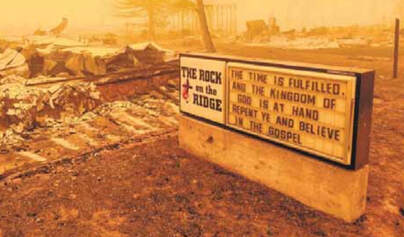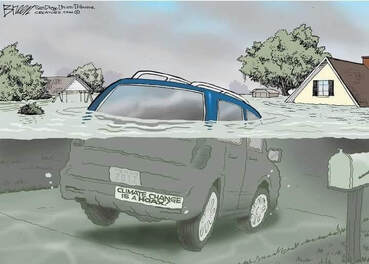I think that, overall, “Americans,” as we choose to call ourselves (thereby attempting to disenfranchise the people who live on the rest of the American continents), have accomplished many great things and done a great deal of good to, and for, the rest of the world. I’m proud of that fact. However, I am also aware of the fact that we have not always lived up to the ideals which we have claimed to be our guiding principles when we chose to establish our nation and to separate ourselves from the colonial power(s) which provided our roots. In this post, I’d like to explore some ideas which relate to this.
American Thanksgiving is, of course, based on the fact that our earliest European settlers chose to celebrate their thankfulness to their deity, who (through their reigning European monarch) had “given” them some “unoccupied” land in North America on which to place their colonies. (Yes, I AM avoiding the debate as to whether the “first” Thanksgiving was in New England or Virginia.)
Of course, the idea that the monarch had the right to give away land which was, in fact, occupied is subject to question, but Europeans didn’t worry much about such things. After all, “those” people really didn’t count as they weren’t really people. There is, of course, evidence that those European colonies might well not have survived without the assistance of “those” people, but we don’t talk much about that, either.
Similar sorts of conscious ignorance and disregard of people of different skin colors, religions, home nationalities, etc. quickly became a standard part of the “American” operating system. And it has, largely, remained so up to and including the present day. After all, “those” people (which have included Africans, Irish, Italians, Greeks, Hispanics [of all sorts], Semitic peoples, Hebraic peoples [from many places], Asians [of all national origins], etc., weren’t really “people.” They didn’t look like us, and/or they didn’t worship the “right” God, and/or they hadn’t been (or weren’t) loyal to the “correct” monarch, or some combination of the above, so they really didn’t count.
Over time, some groups, or some members of some of these groups, were granted greater social acceptance. To put that in non-politically correct, but probably accurate, jargon, they became “White.” Of course, the peoples from whom we took the land we live on were never really considered to be “real” people. And so, it was perfectly acceptable to make all possible attempts to destroy any remnants of their culture, traditions, language, religions, and societies. All things considered, I would suggest that the American treatment of those people was probably worse, overall, than even that of those of African origin.
But some people would say, “We are beyond that now. Racial and ethnic divisions are no longer a significant influence in society. We do have social problems, but those have more to do with poverty, poor housing, family breakdown, etc. than they do with race!” I’m afraid I must disagree. While racial differences MAY not be the only source of social problems in present-day America, what is frequently referred to as “White Privilege,” but might more accurately be called “White Fear,” appears to be at the background of much of the social turmoil which still exists in our society.
I feel required to admit that, as best I can determine, my ancestral background, as determined by several of the companies who deal with such things, is virtually exclusively Northwestern European (British, Irish, French, German, and Scandinavian). About 96%! There’s about 3.5% Southern European (Spanish, Portuguese, Greek and Balkan) in the mix and they say that even most of what’s left (.3%) is Broadly European, whatever THAT means. That suggests only about .2% of my heritage is undefined as “Trace Ancestry.” I think that means that I am pretty close to as “White” as one can get. But that’s just the luck of the draw. I had nothing to do with it, and it certainly says nothing about what kind of a person I am.
So, who cares? While I find it interesting to know something about my heritage, it doesn’t define me. I will admit (after over 70 years of observing “American” society) that it has probably provided me with advantages over many others which I have NOT earned through any action on my part. I have been fortunate enough to have acquired a pretty good education, however, and I have gained a certain amount of exposure to the ideas of science, literature, and the arts, as well as some training in the history of European culture, religion, and politics, as I have spent much of my life studying European-based Theatre, and it is, largely, dependent on such things. Theatre from the rest of the world has been largely ignored in Western academies, apparently because it has been considered mostly irrelevant to our European-based “culture.” I would suggest that, while this may not have been consciously racially driven, one cannot ignore that there are overtones of racism involved in such decisions, no matter how well this decision may seem to be justified.
I point out my “whiteness” to show that I am aware of what I see as the fact of “White Privilege,” but it’s important to note that I’m not convinced that it’s a necessary ingredient of American society, nor should it be, even if it seems to have been and still seems to be in some places.
I was watching a documentary on TV the other day discussing (among other things) the differing ways in which the story of the Civil War has been/is being taught in different parts of the country. In it, someone said something like, “History is the story we tell ourselves to unite us.” I have a problem with that statement. You see, I don’t believe that HISTORY should be a STORY, although that IS the first definition in many dictionaries. To me, “story” implies fiction, which I believe is not/should not be the main ingredient of history nor the function of historians. I believe that the most important part of history is the factual account of who, what, when, where, and, perhaps, how.
“Ah,” you say, “and what about why?” Unfortunately, when you get into “why,” which certainly is worth consideration, it seems to me that you immediately get into assumptions, assertions, explanations, emotions, and value judgements. It IS true that much effort on the part of many historians is spent in researching discussions of that “why,” sometimes actually based on accounts of the events under discussion from a particular time, and sometimes even as reported by participants. But these reports are, of course, NOT objective, documentable facts. They are the OPINIONS of those individuals, so such reports as to the “why” are always opinion, not fact! The fact is, we cannot establish why anyone actually does anything, we can only establish why they say they do (did) it.
Unfortunately, even those who participate in various events are not, necessarily, good witnesses as to what happened, just to what they say (think) happened! There have been many studies which have shown that even eyewitness accounts can be quite unreliable. I remember a professor (of psychology, as I remember it) telling the story of an experiment where another professor was giving a lecture in a medium-sized lecture hall, roughly filled with students. He was getting into his material when he was interrupted by someone rushing into the room, waving a bandana in the air, yelling some nonsense syllables, pulling a banana out of his jacket pocket, pointing it at the professor in the front of the room, yelling “Bang,” and dashing out as the professor fell to the ground behind the podium. (NOTE: this is what actually occurred!) The students present were immediately required to write down what they had observed. The results were astounding.
As I remember what I was told about this experiment, there was general agreement that the “shooter” was, probably, a male, but there was not agreement as to his race, the description of his clothing, the “flag” which he waved, the “cause” he was supporting (that is, what he said), the size, shape or color of the “gun” he drew, how loud the “shot” was (many people said that they heard the shot), or how much blood the professor bled before falling out of sight, etc. Now this was a room full of students attending a class, so one would like to believe that they might have been paying a reasonable amount of attention. But, as a group, they could not agree what happened! What they wrote down MAY have been what they believed they saw/heard, but it was NOT what had actually happened in the majority of cases.
I would suggest that this investigation of what some people THOUGHT happened in any particular instance may be interesting, even valuable. However, it is still only what they THOUGHT! If we are to properly study history, the first thing we must try to do is to establish what the FACTS are (what actually happened.) Then, we MIGHTbe in a position to attempt figuring out possible explanations.
To get back to the documentary which precipitated this train of thought; the Civil War, or “The War of Northern Aggression,” as it was called by a person from Tennessee who was interviewed, has, apparently, been treated quite differently depending on where one lives/attends school. This Tennessean suggested that the Northern army invaded the South and did bad things there, but “We didn’t go up there and cause trouble.” I immediately wondered how the people of Gettysburg, PA, would respond to that. After all, the last I heard, Pennsylvania was never a part of the Confederacy, and Lee’s Army of Northern Virginia’s presence there was what precipitated the well-known battle. I MAY be wrong, but that would suggest that Confederate troops did, in fact, “go up there and cause trouble.” Or does that example not count for some reason? I suppose that that Tennessean may have had HIS facts incorrect, or did he not care because the facts don’t fit his “story?” I can’t be sure, but it WAS a Confederate army, and it WAS in Pennsylvania, so I find it hard to accept his statement because it doesn’t seem to fit the facts.
On the other hand, I suppose that I shouldn’t be surprised that this individual was convinced of the truth of what is factually incorrect. There certainly were enough atrocities done by BOTH sides during the Civil War that neither side can be considered blameless. And what followed that war, especially in attempting to end what was called “Reconstruction,” was, probably, worse, for it became, largely, at least a semi-conscious attempt on the part of most of the dominantly “White” country to ignore the previous history of racial inequality which had existed all over the country, not JUST in the South.
One doesn’t have to look very far into reviews of Othello, for example, to discover that prior to the Civil War even strong opponents of slavery reacted with disgust at the idea of white Desdemona being “pawed at” by black Othello (even when Othello was played by a white actor in blackface). This suggests to me that even being strongly against slavery did not require an acceptance of anything approaching equality before or after Emancipation.
The oft advanced argument that the African American has not taken an equal place in society because of their inherently diminished capacity does not explain the quasi-legalistic confinement of them to, essentially, ghettos, the lack of willingness to provide equality of educational opportunity, require fair housing practices, or equal treatment in public places, and the many aspects of the other aspects of “Jim Crow” culture. If one treated a dog the way African Americans have often been (and often still are) treated, he might rightfully be accused of abusing the animal, AND such treatment would almost certainly not gain one a patient, loving pet.
We, as Americans, also must acknowledge that our treatment of not only almost every immigrant group, even the one we “imported” for our financial gain, to say nothing of our treatment of those First Peoples who were here before Europeans “discovered” America, has been consistently shoddy, unfair, racist, and bigoted. These are FACTS, unpleasant as they may be.
It’s also true that the Confederate “heroes” were, by definition traitors as the U.S. Constitution (established long before the notion of secession was considered) says; “Treason against the United States, shall consist only in levying War against them, or in adhering to their Enemies, giving them Aid and Comfort.” (Article III, Section 3.) Since Confederate soldiers did that, there would seem to be a prima facia case against them. But that’s another matter for another time.
We seem to have a similar sort of blind spot regarding the current pandemic, which IS still raging, and is now approaching two years, while people argue about whether the whole idea of this disease is a plot against some strain of political thought. Some are also suggesting that a government created to “… promote the general welfare….” doesn’t (shouldn’t) have the ability to issue orders for people to take steps to protect themselves and others (like be vaccinated), against THIS disease, when such orders are commonplace (and NOT widely debated) for vaccinations against many other diseases, including: Chickenpox; Diphtheria; Flu; Hepatitis A & B; HPV; Measles; Mumps; Polio; Rubella; Shingles; Tetanus; Pertussis; Anthrax; Rabies; Smallpox; Tuberculosis; Typhoid Fever; Yellow Fever; and others. Somehow, steps to prevent the spread of COVID-19 are considered to be insidious, socialistic, evil political action, or something which is nefarious, whereas requiring other vaccines are not. I confess that I don’t understand this position!
At the risk of offending white Christians who have been raised to think of this picture (see below) as a reasonable representation of what Jesus might have looked like, I have to admit to having sincere doubts that this is likely to even approach an accurate image, no matter how much some of us might wish it to be.
Having become a bit more aware of the realities of what someone born and raised in Palestine during the times involved might have looked like, I have concluded that the odds are much more likely that Jesus probably would have looked more like this.
I have good reason to believe that I have ancestors who were involved in the Salem Witch trials on every possible side. That is, I have ancestors who were among the accused (including several who were hanged), the judges, the accusers, and civic leaders who both supported and who were concerned about how the trials were conducted and whether they were justified. It’s probably worth noting that no one questioned the “reality” of witchcraft, but one doesn’t have to look very hard at the available records of the time to understand that what ended these “Witch” trials was, largely, the reliance on so-called “spectral” evidence (the accusers “seeing” the spirit, shade, apparition of the accused witches tormenting the accusers despite the inability of others to do so). Once again, we have a question as to what a fact is, and what is just reported (reputed) to be so.
I’m still proud to be an American as I think we have come a way towards accepting the fact that while we have not in the past, nor are we now, fully living up to our notion that “All Men are Created Equal,” if we choose to act on knowledge of the facts of our past, we might get there someday. I hope to live long enough to see us at least get a bit closer to achieving this goal, but I don’t think we will make any progress until we at least accept those facts. As long as we continue to play the “We are SO wonderful and anyone who disagrees with that can’t be a true patriot” card, we’re unlikely to make any real progress in living up to what we say we value.
I hope these ideas may encourage others to consider the idea that the “story” of our history may be less than completely useful to us if it isn’t based in the facts of the case. Ignoring facts MAY make us feel good about ourselves but if our knowledge isn’t based on FACT, it’s of no greater value than any other lie. I’d like to live in a country which at least admits that it hasn’t been/isn’t always perfect but is at least still trying to “… form a more perfect Union, ….” I think that’s a desirable end. I’d be really thankful for that!
LLAP, and Happy Thanksgiving!
Dr. B










 RSS Feed
RSS Feed